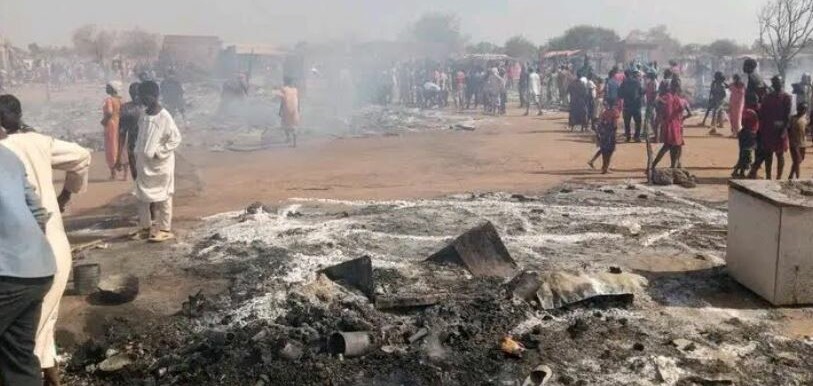Local authorities in Aweil Center County in Northern Bahr el Ghazal State have reported that more than 100 shops and their wares were destroyed by fire on Monday morning.
Speaking to Radio Tamazuj on Monday afternoon, Aweil Center County Commissioner Peter Natale Okech confirmed that a large number of shops, stores, and business premises in Aroyo Town were consumed by fire.
“Today (Monday) around 7 a.m., a certain tea maker identified as Amina Andrea, 26, was going about her work inside Aroyo market and briefly went out to bring chairs and unfortunately, the air instigated the blaze, consuming the whole market,” he said. “Of course, the Aroyo market has strategic warehouses because as the locals from the grassroots migrate to fishing sites along rivers and hunt wild fruits and animals, they store their crops, cereals, and grain in Aroyo because they fear that they will be looted from their homes while they are away.”
When asked if anyone had been arrested in connection to the fire, the commissioner revealed that the accused woman reported herself voluntarily to the Aroyo Police Station where she is now being investigated.
A local businessman, Adior Deng, disclosed that she and other female traders lost property and goods to the fire and said she is worried about how she will feed her family since her main source of income is ruined.
“I am one of the people who did not make it in time to rescue anything from the fire because it was raging and we feared to approach it,” she stated. “We do not know what we will eat today since we depend on daily income.”
An eyewitness, Markot Guot, tweeted: “The Aroyo Market was burned down by fire this morning and all the shops were burnt to ashes except two on which people we are now relying to purchase food and other commodities.”




